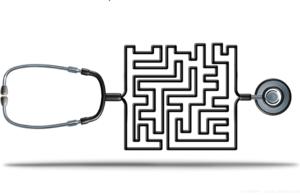From Psychiatric Times: “Conversations in Critical Psychiatry is an interview series aimed to engage prominent individuals who have made meaningful criticisms of psychiatry and have offered constructive alternative perspectives to the current status quo. It is Dr Aftab’s hope that these discussions will stimulate a much-needed debate in the psychiatric community.
Awais Aftab, MD: I have always been intrigued by Dr Allen Frances’ views on psychiatric diagnosis. I was in medical school when DSM 5 was in development, and it was fascinating to see his relentless commentary on issues related to diagnostic inflation and diagnostic validity as an inside critic. His critique also served as a portal for me (and many others) to explore larger philosophical issues in psychiatric diagnosis. This made him an ideal candidate to converse with for the launch of this interview series on critical psychiatry.
In many ways, you are one of the architects of modern psychiatry, yet you have also emerged as one of its most prominent critics. How do you see your own relationship with the field?
Allen Frances, MD: I think psychiatry is among the noblest of professions, but I think that it has drifted astray from best practice. It is heartbreaking to me that 600,000 of our most severely ill patients are either in jail or homeless and that we have done so little to advocate for the community mental health centers and affordable housing that would have freed them from confinement and ended the shameless neglect.
I fear that too many psychiatrists are now reduced to pill pushing, with far too little time to really know their patients well and to apply the rounded biopsychosocial model that is absolutely essential to good care. We also have done far too little to educate the primary care doctors who prescribe 80% of psychiatric meds on the principles of cautious prescribing, proper indications, full consideration of risks, and the value of watchful waiting and tincture of time.
I despair the diagnostic inflation that results from a too loose diagnostic system, aggressive drug company marketing, careless assessment, and insurance company pressure to rush to judgement. Diagnoses should be written in pencil, and under-diagnosis is almost always safer and more accurate than over-diagnosis. And, finally, I object to the National Institute of Mental Health (NIMH) research agenda that is narrowly brain reductionistic; it has achieved great intellectual masterpieces, but so far has not yet helped a single patient. So, in sum, I have loved being a psychiatrist, but wish we were better organized to end psychiatric suffering.”












